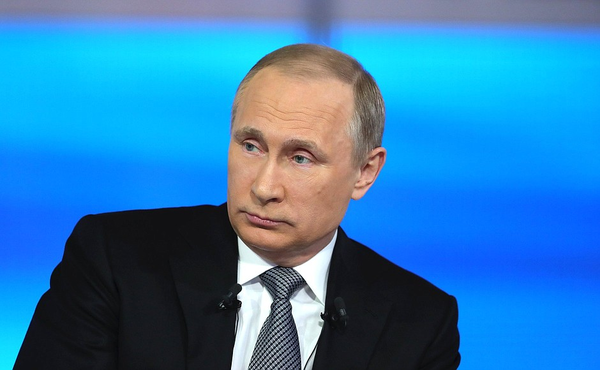What does Putin want from Libya?
It has been almost nine years since the murder of Moammar Gaddafi. All this time, the North African country has been trying to find a foothold and overcome the chaos that followed the collapse of Gaddafi's regime. The Libyan crisis of power, with all the unpleasant consequences associated with it, bothers quite a lot of players in the arena of global politics. Regional neighbors do not feel safe because of the chaos of the Libyan civil war unfolding near their borders. Meanwhile, Europeans are concerned about the problems of Libyan refugees and illegal migrants while the world community is facing another danger spot of international terrorism in Libya. Given that up to the overthrow of the Gaddafi regime, the Libyan state was Russia's ally in the North African region, Russia has its interests in stabilizing the political situation. Moscow is trying to set the pace in resolving the Libyan issue and is guided by ideological, political, and economic factors.
The ideological component is transmitted through the system of Putinism that emerged during the reign of Vladimir Putin. This construction, in accordance with which the domestic and foreign policy of Russia is being built, implies a certain position on the modern world order. In the logic of Putinism, the Libyan crisis is seen as more proof of the failure of the unipolar model. In 2011, the collective West, represented by the countries of the European Union with the support of NATO, overthrew the Gaddafi regime, offering nothing in return. As a result, Libya plunged into a state of uncontrollable chaos, which is currently aggravated by the dual claims of Khalifa Haftar and Fayez al-Sarraj. Both leaders show a weak level of negotiability, and the risks of escalating another civil war are constantly increasing.
As to the political aspect, issues of world prestige are mainly addressed. Vladimir Putin contends that after the success of the Syrian case settlement, Moscow has every right to position itself as an anti-crisis manager in international politics. Libya is another geopolitical task to solve. And the Kremlin can offer its solution algorithm. Right before the Berlin Conference on Libya, the inter-Libyan negotiations involving Russia and Turkey took place in Moscow. Khalifa Haftar and Fayez al-Sarraj did not sign a formal ceasefire, but the systemic settlement process began. So Russia will certainly increase its influence on this track.
The economic interests of Moscow in Libya also mean a lot. In 2008, Russia wrote off the Libyan debt of $4.5 billion in exchange for beneficial contracts for its companies. Thus, a major agreement was concluded by Russian Railways for the construction of a 500-kilometer section of the Sirt-Benghazi road. Besides that, a memorandum of cooperation was signed by the Russian Gazprom and the Libyan National Oil Corporation. Russian-Libyan agreements also included a supply of weapons, infrastructure development, and exploration of oil fields.
As a result of the Libyan revolution, Russian investments happened to be under threat; most of the contracts were frozen or canceled. In fact, Russia lost a profitable partner in North Africa. Now there is a chance to take a kind of economic revenge and return the investments in exchange for efforts to settle the political situation in the country.
Vladimir Putin is well aware of the geopolitical value of Libya as an ally in the Middle East. However, the ally should be legal and legitimate for the agreements to be unshakable and the investments to be reliably protected. In the near future, we will see what the Kremlin will do to uphold its interests in the North African region.
Den Kalmykov, Ph.D. is an expert in economics and a contributor to American Thinker and the Liberty Nation.

FOLLOW US ON
Recent Articles
- What’s the Real Target of the Assault on Tesla?
- MAGA: Progress, Not Perfection
- Saving American Culture through ‘Counter-Spoliation’
- Anecdotes from the Time of Autism
- War Is Hell
- Deep State Anatomy and Physiology
- Sisterhood of the Traveling Pronouns
- Trump’s Tariffs: A Chance to Bring Back Lost Jobs
- Trump's Six-Point Plan for Making America Great Again
- Make IRS Sauce The Same For Both Citizen Goose and Politician Gander
Blog Posts
- Cory Booker’s ‘pretty stunning biological feat’ was a pathetic charade
- With the border secure, Trump cleans up Biden’s excesses on parole, TPS
- Baptists and Bootleggers
- Trump’s tariffs are all about putting America first after decades of exploitation
- The Dragon slips the spotlight
- VIDEO: Trump’s tariffs are necessary and completely pro-American
- The Left is experiencing the grief cycle on a loop
- The Democrats’ superiority complex
- On Wisconsin: The pundit class fumbles (again)
- Around the world, the smart way and the dumb way to respond to Trump's tariffs
- Burning Teslas
- Senator, you talk too much
- The Atlantic's phony migrant tear-jerker about a pitiful 'Maryland father' shipped back to El Salvador falls apart
- Rep. Luna, forgets she’s on the Republican Team!
- Veruca Salt politics or the inevitable result of ‘the personal is political’






